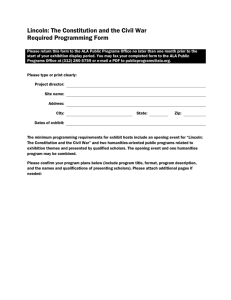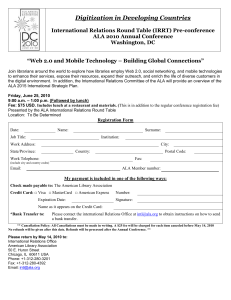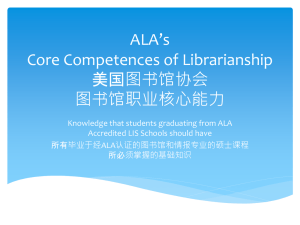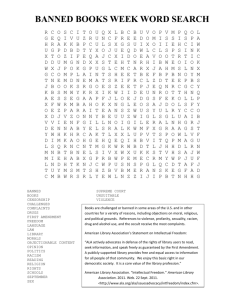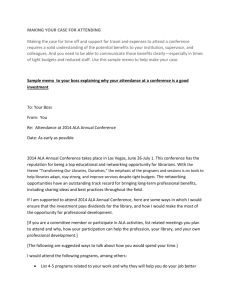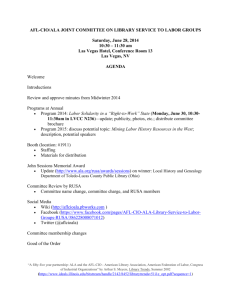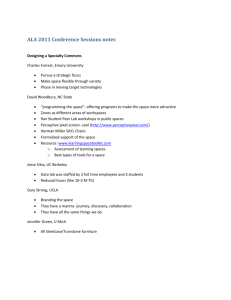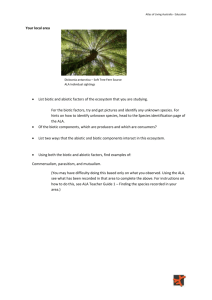Protocol
advertisement
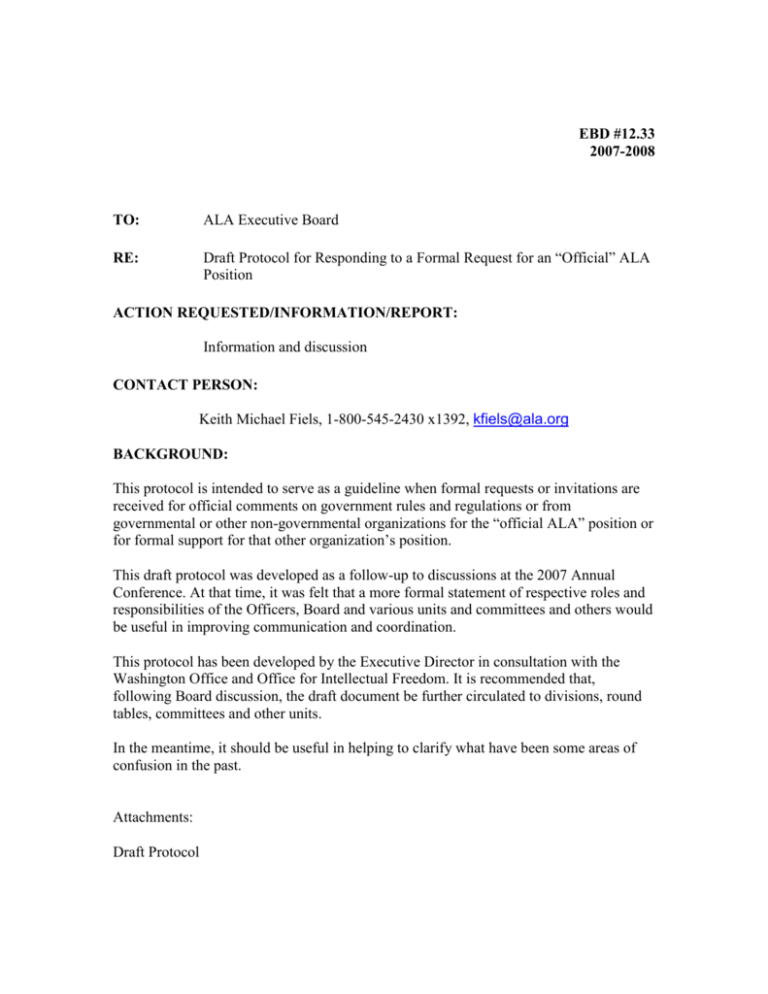
EBD #12.33 2007-2008 TO: ALA Executive Board RE: Draft Protocol for Responding to a Formal Request for an “Official” ALA Position ACTION REQUESTED/INFORMATION/REPORT: Information and discussion CONTACT PERSON: Keith Michael Fiels, 1-800-545-2430 x1392, kfiels@ala.org BACKGROUND: This protocol is intended to serve as a guideline when formal requests or invitations are received for official comments on government rules and regulations or from governmental or other non-governmental organizations for the “official ALA” position or for formal support for that other organization’s position. This draft protocol was developed as a follow-up to discussions at the 2007 Annual Conference. At that time, it was felt that a more formal statement of respective roles and responsibilities of the Officers, Board and various units and committees and others would be useful in improving communication and coordination. This protocol has been developed by the Executive Director in consultation with the Washington Office and Office for Intellectual Freedom. It is recommended that, following Board discussion, the draft document be further circulated to divisions, round tables, committees and other units. In the meantime, it should be useful in helping to clarify what have been some areas of confusion in the past. Attachments: Draft Protocol October 15, 2007 DRAFT American Library Association Protocol for Responding to a formal request for an “Official” ALA position This protocol is intended to serve as a guideline when formal requests or invitations are received for official comments on government rules and regulations or from governmental or other non governmental organizations for an “official” ALA position or for formal support for that other organization’s position. 1. Is there already an official position? There may be an existing ALA policy or a Council resolution. In this case, the policy or resolution would serve as the official statement. In many instances, however, an official statement involves an interpretation of ALA policy. 2. Who can issue an official statement? In general, an official statement involving an interpretation of ALA policy will be issued by the President or Executive Board or the Divisions (within ALA policy and their Council-designated area of responsibility). Many ALA Committees have also been granted specific responsibilities for the interpretation of ALA policy as part of their Council-approved charge (an example is the Intellectual Freedom Committee, which has responsibility “To recommend such steps to safeguard the rights of library users, libraries and librarians in accordance with the First Amendment and Library Bill of Rights…in matters touching upon intellectual freedom and censorship). In the case of legislative and regulatory issues, The Committee on Legislation has specific responsibility “To seek rulings and interpretations of laws and regulations affecting the welfare and development of libraries [and] to represent the ALA before Executive and Legislative branches of government as required at all levels.” The COL also has the authority “To recommend legislative policy and programs for Council approval.” If a unit or committee has specific responsibilities for interpreting or implementing ALA policy, it may handle requests in accordance with its Council-approved charge or Council-designated area of responsibility, in consultation with the President and Executive Director. If a unit that does not have specific responsibilities receives a request for an official statement, it should be forwarded to the President or Executive Director so that it may be appropriately referred and appropriate units consulted. In the case of legislative and regulatory requests, it may also be referred to the Committee on Legislation. 3. Who needs to be consulted? When an issue requires an interpretation of ALA policy, any ALA units or committees that may reasonably have an interest in the issue should be consulted in developing an official statement. It is the responsibility of the unit or committee with the primary responsibility to initiate this dialog with other units. In some instances, a request falls within the Council-approved charge of more than one committee. In such an instance, it is expected that the committees will work together in preparing an official statement. 4. What about joint statements with outside organizations? The development of a joint statement with an outside organization or the “signing on” to another organization’s official statement should only occur once all appropriate ALA units or committees have been consulted and an ALA position agreed upon. 5. What if there is not sufficient time to consult all parties or if there is a difference of opinion among units? The unit or committee with delegated responsibility is responsible for the decision as to whether or not an official statement based on an interpretation of ALA policy will be issued. In some instances, the Association may not be able to take an official position if appropriate units or committees with a reasonable interest in an issue cannot be consulted. In some instances, a difference of opinion may exist regarding the interpretation of ALA policy that cannot be resolved between units or committees. If the matter falls within the responsibility of more than one unit or committee, no official statement would be issued until agreement has been reached. The ideal goal is to reach consensus prior to issuing a statement.
